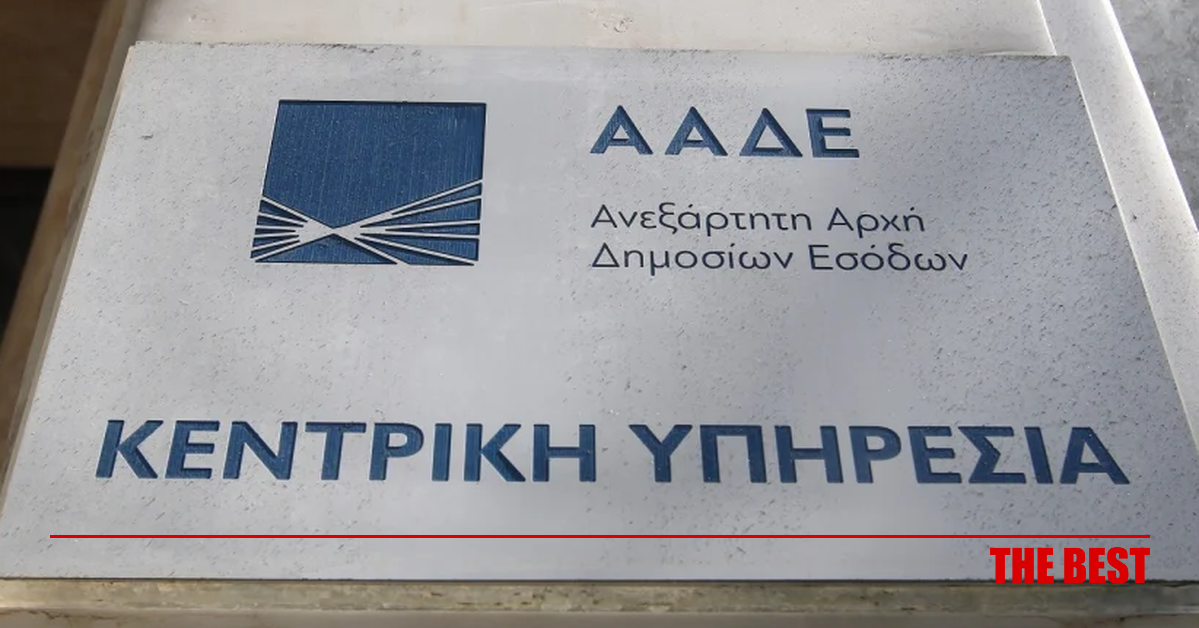
Debt collection Among those considered uncollectible and those for which the collection mechanism will collect debts owed to the state, the Ministry of Finance is trying to do.
The goal is to empty the list of debtors from those who are no longer considered able to pay or settle their debts and leave only those who can close their accounts with the state.
In this case, the debts owed to the state will not be written off until after the audits are completed and on strict condition that it has been ascertained that there is no means or assets capable of covering the debt.
Specifically, debts that are past due to the state, as well as debts secured by third parties are classified as uncollectible, if the following conditions are cumulatively met:
The investigations have been completed based on the electronic means available to AADE and no assets of the debtor and debtors have been created or their claims against third parties or their assets sold in any irrevocable manner that has been proven or in the event of burglary and in particular the completion of the forced execution process on the debtor’s phone, real estate or His claims with the acceleration of the state or third parties or with the liquidation process and the cessation of bankruptcy proceedings, if he is bankrupt.
A request for criminal prosecution has been submitted or could not be submitted.
An audit is carried out by a specially appointed auditor of the competent tax or customs authority, who certifies, on the basis of a specially justified audit report, that the conditions of the previous cases are fulfilled and that it is objectively impossible to collect the debt.
The work of classifying the receivables as eligible or not for collection and recording them in the books of the non-acceptable groups shall be carried out by a decision of the AADE Governor, in accordance with the provisions regulating them. As long as the total principal debt is more than 1,000,000 and 1,500,000 euros, these operations are notified to the service of the commissioner of the Court of Auditors responsible for the control of public revenue, which is also controlled.
If necessary, the transactions herein may also be audited in respect of the total principal debt less than the above amount.
From the registration of the debt in the books of the inadmissible groups and for a period of ten years from the end of the year in which the registration is made, its statute of limitations is automatically suspended, and no evidence of tax awareness is given to the debtor and the joint responsible persons for any reason or the legally prescribed certificate for the transfer of assets , unless it is for the collection of funds to allocate them for the satisfaction of the state or for the sale of assets, its proceeds will be allocated for the same purpose and the bank and investment accounts and their contents are completely frozen from the deposit funds of banks or other credit institutions of the above-mentioned persons.
Finally, a debt that has been recorded as uncollectible is reclassified as collectible, if it is established before the statute of limitations that there is a possibility of partial or full payment either by the debtor or by the partner debtor.
What debts are classified as uncollectible?
Overdue debts of the state, as well as debts secured by third parties are considered uncollectible, if the following conditions are cumulatively fulfilled:
a) Investigations have been completed based on the electronic means available to AADE and no assets of the debtor and cooperating debtors have been created or their claims against third parties or their assets sold in any manner not subject to cancellation or burglary and in particular it has been established that the execution process has been completed on The debtor’s movable and immovable property or claims with the acceleration of the state or third parties or with the liquidation process and the cessation of bankruptcy proceedings, if it is a bankruptcy case.
b) An application for criminal prosecution has been submitted or could not be submitted.
c) an audit is carried out by a specially designated auditor of the appropriate tax or customs authority, who, on the basis of a specially justified audit report, certifies that the conditions of the previous cases are fulfilled and that it is objectively impossible to collect the debt. In the case of state-controlled or state-supervised companies that are in the process of liquidation or bankruptcy, it is required to declare the state in the above-mentioned liquidation or bankruptcy proceedings and assistance in paragraphs B and C. In the case of debts relating to the societies of diaspora organizations, which own Greek schools abroad, the assistance of paragraph c is required.”
The work of classifying the receivables as eligible or not for collection and recording them in the books of the non-acceptable groups shall be carried out by a decision of the AADE Governor, in accordance with the provisions regulating them. As long as the total principal debt is more than one and a half million (1,500,000) euros, these operations are notified to the Commissioner of the Court of Auditors responsible for the control of public revenue, under which they are also notified. under control. If necessary, the transactions herein may also be audited in respect of the total principal debt less than the above amount.
– from the registration of the debt in the unacceptable collection books and for a period of ten (10) years from the end of the year in which the registration was made: a) its statute of limitations is automatically suspended, b) the debtor and debtor partners have not been given evidence of tax awareness for any reason or any other certificate legally determined for the transfer of assets, unless for the collection of funds that will be allocated to the satisfaction of the state or the sale of assets, the product of which will be allocated for the same purpose, c) as a whole is bound by bank and investment accounts and the contents of deposit boxes in banks or other credit institutions of the above-mentioned persons
The state reserves its full right to collect the debt or set it off even after it is recorded in the books of the unacceptable groups.
A debt which, in accordance with the foregoing, was recorded as uncollectible, shall be reclassified as collectible, if, before the limitation period, it was found that there is a possibility of partial or full payment either by the debtor or by the joint debtor.

“Avid problem solver. Extreme social media junkie. Beer buff. Coffee guru. Internet geek. Travel ninja.”





More Stories
Which brands have not sold a single new car in Greece?
The unknown trick – for just 1 euro you can make your car's windshield look like new
Two groups lay down “secret” rocket fuel.